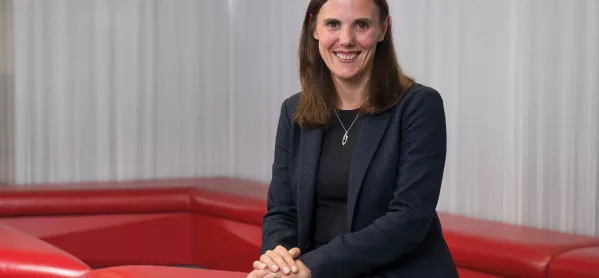School autonomy is "difficult" to justify according to the chief executive of one of England's largest multi-academy trusts.
Rowena Hackwood is chief executive of the David Ross Education Trust, which has 34 schools in the East Midlands, London, the North East, and Yorkshire and the Humber.
Autonomy used to be one of the key justifications for the creation of academies.
But Ms Hackwood said: "We are creating a family. We have a network of schools. Autonomy doesn’t really have a place within that, in my opinion, because it’s quite difficult to work up an argument that says, ‘This is why I want to be autonomous; this is the benefit I get from being autonomous’.
“Because when the trust had 34 different schools behaving in 34 different ways, quality standards were incredibly varied. It’s really important that we recognise that the value of us all working together is very much greater than the value of everybody working independently.”
The former management consultant, who has worked in the private, public and charity sectors, said the number one priority in her first year at the trust was about “creating an organisation that wasn’t 34 different organisations with a head office that was simply seen as an overhead, but to create a corporate organisation that felt [as though] it all belonged together and where everybody felt they were in it together – this idea of a collective endeavour”.
She told Tes that while some differences were needed to accommodate the wide variety of sizes and locations of David Ross academies, the trust was “very much on the standardised end” when it comes to the freedoms that MATs give their schools.
One example of this approach is the single primary curriculum that was rolled out across the trust towards the end of the year.
Ms Hackwood said she has also made a conscious attempt to “demystify” what it means to be part of a MAT.
She has started a six-weekly One-Trust Call, a one-hour session in which all the MAT’s 2,000 members of staff are invited to grill Hackwood – in person, over the phone or anonymously.
“I have people asking why I haven’t given staff pay rises, why I think standardisation is a good idea and ‘Does this take autonomy away from classroom teachers?’ People go straight for it,” she said.
This is an edited article from the 17 August edition of Tes. Subscribers can read the full article here. To subscribe, click here. This week's Tes magazine is available in all good newsagents. To download the digital edition, Android users can click here and iOS users can click here.




